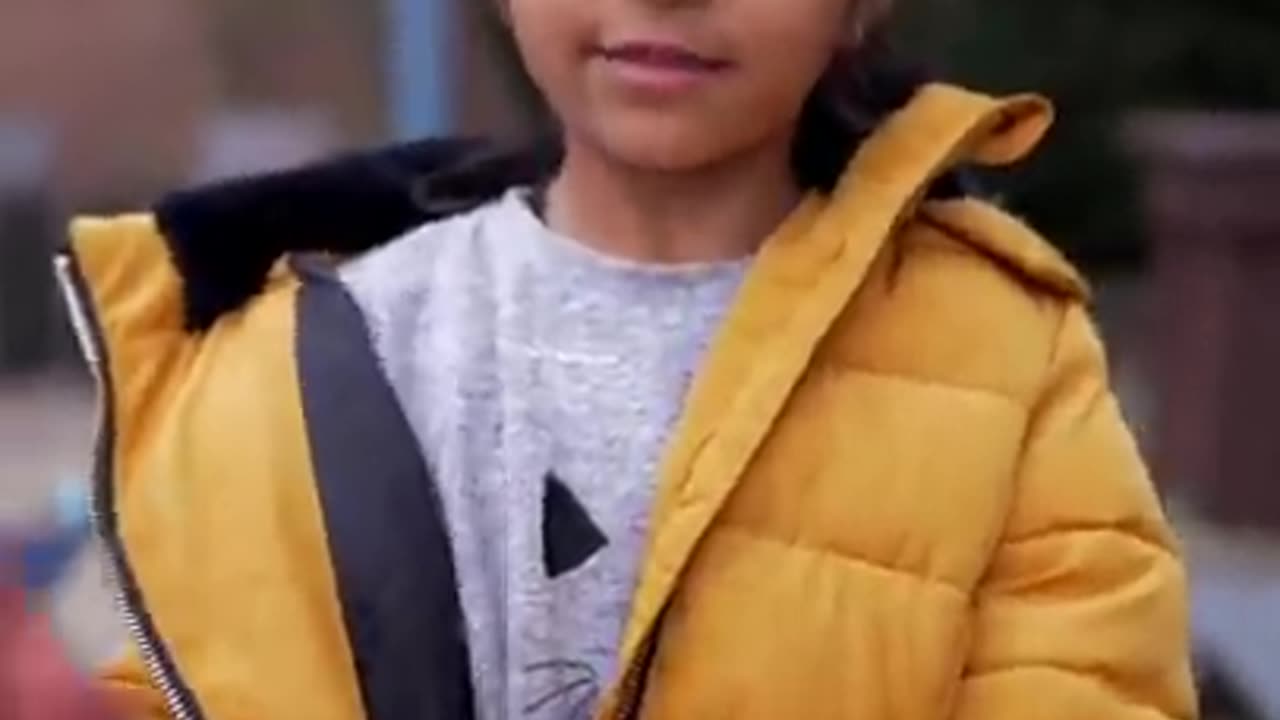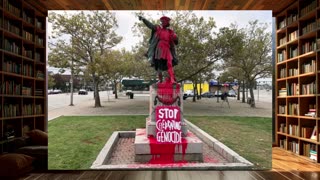Premium Only Content

Muslim kids should handle Islamophobia..
How Muslim kids should handle Islamophobia..
In a world where diversity is celebrated yet often met with misunderstanding and fear, Muslim children find themselves navigating a complex landscape of identity and belonging. Islamophobia, fueled by misconceptions and prejudice, can create challenges and obstacles for young Muslims as they strive to embrace their faith while also integrating into society. However, with guidance and support, Muslim children can learn to navigate and respond to Islamophobia with resilience, empathy, and strength.
Meet Sara, a bright and curious 10-year-old Muslim girl living in a bustling city. Sara loves learning about her faith and cherishes the traditions and values that Islam teaches her. However, she has also encountered instances of Islamophobia – whether through hurtful comments at school or negative portrayals in the media. As she grapples with these experiences, Sara seeks guidance from her parents and community to help her navigate this challenging reality.
Sara's parents, understanding the importance of empowering their daughter, engage her in open and honest conversations about Islamophobia. They explain that while ignorance and prejudice exist, it is essential for Sara to respond with dignity and grace, rooted in the teachings of Islam. They teach her about the principles of patience, forgiveness, and empathy, emphasizing the importance of treating others with kindness and respect, even in the face of discrimination.
With her parents' guidance, Sara learns to confront Islamophobia with knowledge and understanding. She educates her classmates about the true teachings of Islam, dispelling misconceptions and fostering dialogue and understanding. Through her actions, Sara becomes a beacon of light in her school community, promoting acceptance and unity among her peers.
Sara also finds strength in her faith community, where she participates in youth programs and activities designed to empower young Muslims. Here, she learns about the rich history and contributions of Muslims throughout the ages, inspiring her to take pride in her identity and heritage. She also develops a network of supportive peers who share her experiences and provide encouragement and solidarity in times of adversity.
As Sara grows older, she becomes increasingly aware of the broader societal issues surrounding Islamophobia. She witnesses instances of discrimination and injustice directed at Muslims in her community and around the world, from hate crimes to discriminatory policies. Determined to make a difference, Sara joins youth-led initiatives aimed at promoting social justice and combating Islamophobia through education, advocacy, and activism.
With the support of her parents, community, and peers, Sara learns to channel her experiences with Islamophobia into a force for positive change. She becomes a passionate advocate for diversity and inclusion, using her voice to challenge stereotypes and promote understanding and empathy. Through her actions, Sara inspires others to stand up against bigotry and intolerance, fostering a more inclusive and equitable society for all.
In the face of Islamophobia, Muslim children like Sara have the power to respond with resilience, empathy, and strength. With guidance from their families, communities, and faith, they can navigate the challenges they encounter with grace and dignity, emerging as leaders and advocates for a more just and compassionate world. Through education, dialogue, and activism, they can work to dismantle stereotypes and foster understanding, creating a brighter future for generations to come.
-
![This game no longer exists | [6-30-25] | THE CYCLE: FRONTIER](https://1a-1791.com/video/fww1/f0/s8/1/Z/g/4/X/Zg4Xy.0kob-small-This-game-no-longer-exists-.jpg) LIVE
LIVE
HEXIK
4 hours agoThis game no longer exists | [6-30-25] | THE CYCLE: FRONTIER
59 watching -
 LIVE
LIVE
ADH Gaming
9 hours agoTasking, Lootin, shootin/ hUNT sHOWDOWN
39 watching -
 2:23:35
2:23:35
TheSaltyCracker
11 hours agoSo Much Winning ReeEEeeStream 06-29-25
121K356 -
 6:05:51
6:05:51
SpartakusLIVE
12 hours ago#1 Texas FARMBOY Turned World-Wide Gaming SUPERSTAR amasses NERDS in chat from the ENDS OF THE EARTH
94K1 -
 9:37
9:37
MattMorseTV
16 hours ago $4.48 earnedThis just ENDED his CAREER.
25.5K54 -
 9:10:30
9:10:30
Spartan
16 hours agoPro Halo Player | Grinding, Another day to try and get better
68.7K2 -
 2:31:12
2:31:12
Nerdrotic
13 hours ago $9.21 earnedCosmic Summit Recap, Skinwalker Ranch Season 6 | Forbidden Frontier #106
139K8 -
 3:04:51
3:04:51
This is the Ray Gaming
8 hours ago $5.67 earnedSunday Night With The Homies
46.2K4 -
 2:26:29
2:26:29
vivafrei
22 hours agoEp. 270: MASSIVE SCOTUS WINS! Big Beautiful Bill! New-Scum Sues! Diddy Watch! Big Apple Rot & MORE
159K148 -
 8:38:54
8:38:54
a12cat34dog
16 hours agoTHE *NEW* KRATOS IS EPIC :: God of War (2018) :: FIRST-TIME PLAYING {18+}
51.2K3